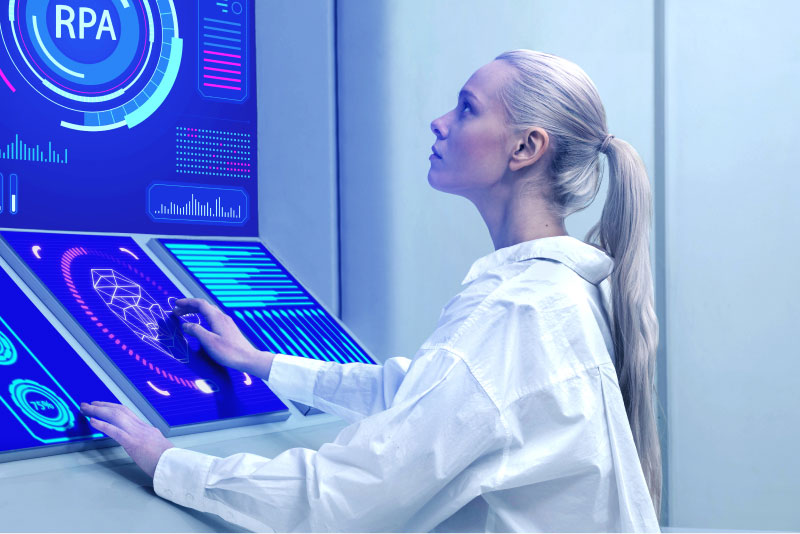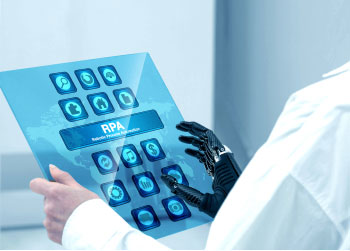RPA Automations
Robotic Process Automation (RPA) is a transformative technology that leverages software robots, also known as bots, to automate repetitive and rule-based tasks within business processes. These bots emulate human actions in interacting with digital systems, applications, and data, executing tasks with precision and efficiency. RPA is characterized by its ability to streamline workflows, reduce human error, and enhance operational efficiency across various industries.We offer Robotic Process Automation (RPA) services to use software robots or "bots" to automate repetitive and rule-based tasks within business processes. RPA aims to increase efficiency, reduce human errors, and free up human workers to focus on more strategic, creative, or complex tasks.

In a nutshell, RPA automations involve the deployment of software robots to perform routine, mundane tasks, allowing human workers to focus on more complex and strategic activities. This technology has the capacity to significantly accelerate processes, improve accuracy, and contribute to overall cost savings within organizations. RPA is applicable in a wide range of industries, from finance and healthcare to customer service and human resources, offering a scalable and agile solution for repetitive task automation.
Bots
RPA bots are the software entities responsible for executing automated tasks. They interact with user interfaces, applications, and databases, mimicking human actions to perform tasks such as data entry, extraction, and manipulation.
Orchestrators
Enterprise Resource Planning (ERP) software integrates core business processes such as finance, human resources, procurement, and inventory management into a unified system. ERP solutions provide a holistic view of an organization's operations, facilitating data-driven decision-making and improving overall efficiency. Popular ERP systems include SAP, Oracle, and Microsoft Dynamics.
Development Studio
RPA Development Studio provides a user-friendly environment for creating and configuring bots. It typically includes a visual designer where users can define automation workflows using a drag-and-drop interface, often without the need for extensive coding.
Control Room
The control room is a centralized dashboard within the RPA platform that allows administrators and operators to monitor and manage the performance of deployed bots. It provides insights into bot activities, exception handling, and overall system health.
Automation of Repetitive Tasks
RPA excels in automating routine, repetitive tasks that are rule-based and involve structured data. This includes data entry, form processing, report generation, and other high-volume, transactional processes.
